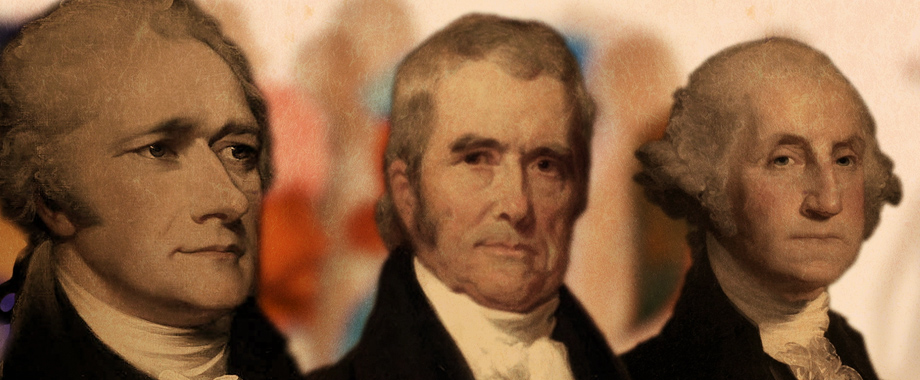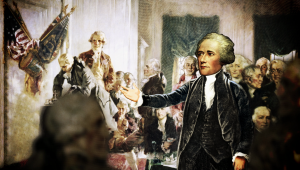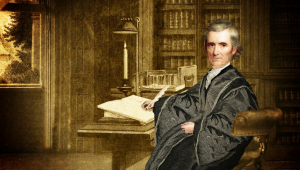About the Film
You know the story. In 1787 the Founders met in a sweltering room in Philadelphia over three months to draft the Constitution. What you may not know is that they were supposed to be fixing an earlier document, The Articles of Confederation. But founders like George Washington, James Madison and Alexander Hamilton remembered how the Articles’ weak central government had almost lost the Revolutionary War. So they tossed it aside and wrote a new Constitution, one with a strong central government. And to give this new government final say over the States, they included the Supremacy Clause.
The Supremacy Clause is in Article VI of the Constitution. It reads, “The Constitution, and the laws of the United States… shall be the supreme law of the land.” But what does that mean, and where does that power end? The Founders would soon find out when Alexander Hamilton, the first Secretary of the Treasury, put forward a plan to found a National Bank.
Thomas Jefferson, the first Secretary of the Treasury, objected to the idea from the start. He and other founders worried that a National Bank would make the Federal Government too powerful. They had just fought a war to escape an all-powerful king. However, Congress and President George Washington sided with Hamilton. The First Bank of the United States was charted in 1791. But the issue was hardly settled.
When the bank was re-chartered again in 1816, some states worried that the expanding National Bank would threaten their own state banks. Tennessee, Georgia, North Carolina, Ohio and Maryland all levied taxes on the bank intending to weaken it. The National Bank branch in Baltimore refused to pay the tax, so Maryland took it to court. The resulting Supreme Court case, McCulloch v. Maryland, would define not only where federal power and state power begin and end, but what kind of a nation we would become. Would we be an assemblage of allied states, like under the Articles of Confederation, or one country united under a supreme Constitution?
Further Reading
Full Text of the Constitution of the United States at the National Archives
Opinion in McCulloch v. Maryland (1819)
Learn More about the Marshall Court
Credits
Producers, Gregory Blanc and Robe Imbriano
Writers, Robe Imbriano and Gregory Blanc
Narrator, Robe Imbriano
Editor, Steven Golliday
Additional Editing, Marc Tidalgo
Animation, Thomas Curtis and Rob Donnelly
Photography, Edward Marritz, Brett Wiley and Thorsten Thielow
Senior Production Associate, Melissa Saucedo
Sound, Mark Mandler and Brian Buckley
Music, Audio Network
Online Editor, David Colonna
Online Producer, Dylan Puchala
Re-recording Mixer, Neil Cedar, Sync Sound, Inc.
Head of Production, Innbo Shim
Production & Post Coordinator, Dana Germano
Production Accountants, Mara Connolly, Andrea Yellen and Selen Esendal
Assistant to the Executive Producer, Willa Jones
Senior Producers, Wendy Roth and Kayce Jennings
Executive Producer, Tom Yellin




